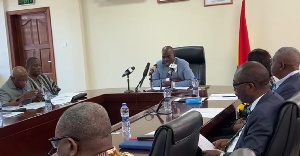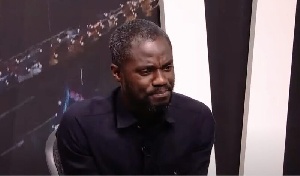- Home - News
- Elections 2024
- News Archive
- Crime & Punishment
- Politics
- Regional
- Editorial
- Health
- Ghanaians Abroad
- Tabloid
- Africa
- Religion
- Photo Archives
- Press Release
General News of Friday, 25 April 2025
Source: www.ghanawebbers.com
Education minister directs NTC to propose alternatives before it scraps teacher licensure exams
The Minister for Education, Haruna Iddrisu, has given the National Teaching Council (NTC) a new task. They need to create a professional alternative to the current teacher licensure exams. The government plans to eliminate this policy.
This decision aligns with President John Mahama's campaign promise. He pledged to end the teacher licensure exams if elected in 2024. The Education Minister confirmed that the government is committed to this promise.
Iddrisu stated, “Yes, it is true the NDC campaigned on a manifesto promise.” He emphasized that they will keep faith with the electorate.
He announced plans to set up a committee for this transition. This committee will guide moving from licensure exams to a new assessment system.
Iddrisu explained, “That is why I am putting this committee together.” He wants them to advise on how to make this change smoothly.
The new approach should include academic training and practical fieldwork. This will be part of the teacher education curriculum. “It was our pledge to incorporate it into the curriculum,” he added.
He also instructed the committee to consider giving candidates one last chance at re-sitting failed exams. “I want to say that one last opportunity of a resit… must also be part of your recommendations,” he noted.
In addition, Iddrisu expressed concerns about graduate quality from tertiary institutions. He made these comments during the inauguration of the new board of the Ghana Tertiary Education Commission (GTEC).
He congratulated the newly appointed board members and wished them well. He reminded them of their duty: regulating and improving higher education in Ghana.
“Focus primarily on the regulatory mandate of the commission,” he stated. Higher education is crucial for many young people entering the workforce.
Iddrisu highlighted complaints from private sector employers about graduate competence. “There are complaints from the Ghanaian private sector about quality,” he said.
He urged GTEC to assess graduates' performance in interviews across sectors. While some universities excel, others may not meet standards.
He called for special attention to improve overall higher education quality in Ghana. "Some don’t live up to expectations," he remarked about certain institutions.
“They have legitimate concerns… contributing to Access, Relevance and Quality in higher education,” he concluded.











